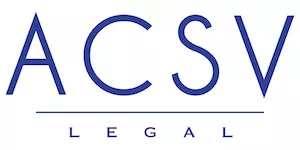The Vietnamese National Assembly enacted a new Law on Anti-Money Laundering (2022 AML Law) that took effect in early 2023. In support of its implementation, Decree No. 19/2023/ND-CP was issued (Decree 19). Decree 19 supersedes Decree No. 116/2013/ND-CP (as amended and supplemented by Decree No. 87/2019/ND-CP) (Decree 116).
Except for some articles, Decree 19 took effect from the date of its issuance on 28 April 2023. The articles regarding the new thresholds for identifying suspicious transactions, as mentioned in Section 1.2 will only come into effect on 1 December 2023.
In this legal update, we will highlight several key aspects of Decree 19.
1. Customer Due Diligence Requirements
1.1 Opening an E-Wallet
In line with the 2022 AML Law's expansion of the list of financial institutions (FIs) to encompass payment intermediary service providers within the purview of reporting entities which are obligated to conduct a customer due diligence (CDD) and adhere to recordkeeping practice as part of anti-money laundering measures, Decree 19 has established a relevant mandate. In particular, FIs are required to perform CDD when a customer opens an e-wallet for the first time.
1.2 Thresholds for Performing CDD
Decree 19 revised the thresholds used for identifying situations in which FIs and some relevant designated non-financial businesses and professions (DNFBPs) are required to conduct CDD.
In particular, a new threshold is set at VND 400 million for FIs which is an increase from the previous threshold of VND 300 million. More specifically, the FIs are required to perform a CDD when a customer, who does not have an account or who currently has an account but such account has remained dormant for the past six consecutive months, engages in transactions involving deposits, withdrawals, or transfers that cumulatively amount to at least VND 400 million or the equivalent in foreign currency within a single day. This provision does not apply in cases of final settlements or withdrawals of saving interests, repayments of credit card debts, repayments of loans to financial institutions, registered instalment payments with financial institutions, and withdrawals of profits from securities or bond investment portfolios.
An identical threshold applies to dealers in precious metals and stones, which is a DNFBP. These dealers are required to carry out a CDD when a customer conducts a cash transaction involving the purchase or sale of precious metals and stones, reaching a value of at least VND 400 million which increased from VND 300 million, or the equivalent in foreign currency, within a single day. For gambling operators, also a DNFBP, the threshold is set at VND 70 million, which increased from VND 60 million.
The above-mentioned new thresholds will come into effect on 1 December 2023.
2. Beneficial Owner
A beneficial owner can be understood as an individual who is the de facto owner of a property even though the title to the property is in the name of another individual; or who ultimately owns or controls an interest in a legal entity or an agreement. Reporting entities are required to gather beneficial owner information during the CDD process. Decree 19 sets out the following criteria for determining a beneficial owner:
- If an individual customer opens an account, the beneficial owner is the individual who actually holds ownership or controls that account;
- For an individual customer who establishes a relationship with the reporting entity, the beneficial owner is the individual who establishes and actually controls that relationship;
- In the case of organisational customers, the beneficial owner
is the individual who:
- actually, directly or indirectly holds at least 25% of the entity's charter capital or ultimately controls the entity;
- is a legal representative of the entity who does not represent state capital invested in that entity in case no individual can be identified based on the aforementioned criteria; or
- is the individual publicly announced as the beneficial owner of the entity being a listed company;
- To identify the beneficial owner of an agreement, the reporting entity must collect identifying information regarding the trustor, trustee, beneficiary, related parties, and individuals who have ultimate control over the trust; or
- Individuals who actually enjoy benefits as the insured parties in the life insurance policies.
3. Complex Transactions
The 2022 AML Law requires reporting entities to be cautious about unusual transactions, including complex or unusually high-value transactions. Decree 19 introduces a new definition of "complex transactions" which deviates from the definition outlined in Decree 116. While Decree 116 classified complex transactions as those conducted through modalities not conformable with the nature of the transaction, such as involving unnecessary multiple intermediaries or account transfers, transactions across various accounts held by the same account holder across different geographic regions, or transactions which the reporting entities deem abnormal and requiring stringent scrutiny, Decree 19 adopts a different approach. It states that a transaction is deemed complicated when it is not in line with the scale, type, and nature of a customer's business, or the frequency, modalities, and scale of comparable transactions within the same sector or industry.
Some companies might have rolled out and implemented internal protocols or policies concerning complex transactions before the effectiveness of Decree 19. With the alteration in the definition of complex transactions, these companies should carry out a comprehensive review of their internal protocols or policies to ensure their compliance with the revised scope of complex transactions as defined in Decree 19.
4. Obligation of Information Provision
Upon receipt of a request from the State Bank of Vietnam (SBV) and competent authorities, the reporting entities shall promptly provide them with sufficient information, dossiers, documents and reports on anti-money laundering (e.g. information or reports on CDD, or on suspicious transactions). Decree 19 specifies the following competent authorities:
- The agency performing the function and duty of preventing and combatting money laundering under the auspice of the SBV;
- The investigating agencies and the agencies assigned to conduct a number of investigation activities or the People's Procuracy when performing their duties in accordance with the decision to prosecute the crimes or the suspected; the agencies specialised in protecting national security under the auspice of the people's public security authorities; and
- The State inspection agencies and the agencies assigned to perform the specialised inspection of the reporting entities.
It can be inferred that the reporting entities may reject information requests from competent authorities not included in the specified list of aforementioned authorities. To mitigate the risk of breaching non-disclosure obligations or data privacy requirements, it is prudent for the reporting entities to verify the identity of the requesting agency upon receiving their request.
5. Identifying Transaction-Related Parties on the Blacklist
The reporting entities are required to suspend a transaction if there is a reasonable ground to suspect that the parties involved in the transaction are on the blacklist which will be announced from time to time by the Ministry of National Defence and the Ministry of Public Security. Decree 19 outlines these grounds, which include instances where the transaction-related parties possess information that matches:
- the complete details of individuals and organisations listed on the blacklist; or
- the essential identification details (e.g. full name, date of birth, tax code) of individuals or organisations on the blacklist and based on the gathered information, there is reason to believe that these parties are involved in terrorism or terrorist financing, proliferation, or funding of weapons of mass destruction.
The content of this article is intended to provide a general guide to the subject matter. Specialist advice should be sought about your specific circumstances.


